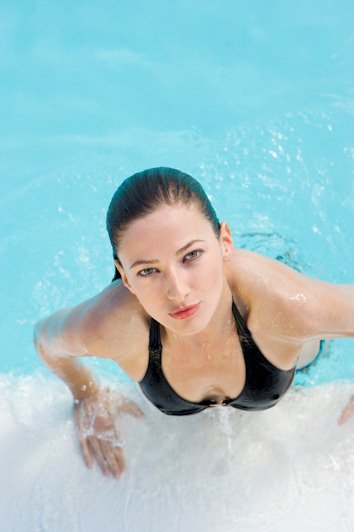In summer it is important not to forget to protect and take care of the eyes of adults and children since exposure to UVB and UVA rays from the sun can harm our eye health. USP Instituto Oftalmologico de Barcelona (USP IOB) warns of dangers and precautions, as well as recommendations and advice that we must take into account to take care of our eyes from the effects of high ambient light, exposure to the sun, chlorine from swimming pools or sea salt.
The most frequent problems that we encounter in summer “are above all infections such as conjunctivitis or dry eyes; allergies that must be controlled so that they do not lead to other more serious pathologies. It is also important Protect yourself from ultraviolet rays with suitable sunglasses for both adults and children and to avoid accidents as a result of sports practice”, says Dr. Antonio Arguedas, medical director of USP IOB.

Common infections in summer
Summer is a time for the transmission of eye diseases, whether bacterial or viral, the most common of which are conjunctivitis and keratoconjunctivitis.
Sea water and swimming pools are irritating to the eyes and can also be a vehicle for transmitting eye infections. The use of contact lenses in swimming pools and on the beach increases the risk of contracting very serious infections and increasing dry eyes.
There are also frequent cases of conjunctival irritations due to excessive chlorination of the water, so the use of swimming goggles is recommended. which may even be graduated. If symptoms such as itching or stinging appear, you should never rub your eyes as it will cause increased inflammation and discomfort, it is best to go to the ophthalmologist.
Eye allergies
During the summer the cases of allergic conjunctivitis increase considerably. The sun, dust, temperature changes and pollination that characterize spring and part of summer, are the main factors for contracting conjunctivitis.
In addition to allergy, there are other eye diseases that can coexist with it, such as dry eye, in which the tear film allows allergens and toxic compounds to stay in contact with the ocular surface for longer and trigger the allergic inflammatory reaction..
According to Dr. Agued as “it is important, when you start to have the first symptoms, to go to the ophthalmologist’s office since that way we can diagnose associated pathologies such as chronic blepharitis or meibomitis (inflammations of the eyelid)”.
Some tips to reduce allergies are to wear sunglasses as they reduce the contact of allergens with the eyes; put a special filter for allergy sufferers in the air conditioning unit; reduce outdoor activities until mid-morning, since before there is a greater amount of pollen; use swimming goggles, because chlorine worsens allergic conjunctivitis, or clean your hands frequently and avoid contact with the eyes.
Protect yourself from ultraviolet rays with sunglasses
Excessive exposure to solar radiation, especially ultraviolet rays, can cause eye injuries typical of this time of year such as keratitis (damage to the surface of the cornea), conjunctivitis or premature cataracts. In addition, these radiations can accumulate in the ocular structures and symptoms appear some time later.
Another factor to take into account is the continuous deterioration of the ozone layer, whose main function is protection against ultraviolet radiation that is harmful to the eye. For this reason, it is important to wear approved sunglasses as they manage to protect from ultraviolet radiation, reduce the probability of glare, and dampen solar light.
Eye injuries in sport: sunglasses adapted to each sport
One of the typical consultations of ophthalmological emergencies in summer are injuries derived from the practice of sports, especially sports such as tennis, paddle tennis or squash that when using small balls increase the risk of receiving the impact of the ball in the eye.
There have been cases of serious accidents in which the impact of the ball causes the eyeball to burst or cut injuries to its surface that can end up causing functional and anatomical injuries, sometimes irreversible.
The use of eye protection glasses adapted to each sport is recommended for accident prevention. For example, when cycling, glasses prevent the impact of small bodies in the eyes, or when swimming, they prevent eye irritation due to the chlorination of the water.
The eye health of the little ones: children should wear sunglasses
Children are particularly vulnerable to harmful ultraviolet rays (UVA and UVB) and special attention must be paid to them to prevent irritations and allergies.
As Dr. Arguedas explains, “as in adults, children should also protect their eyes with approved sunglasses and with a protective filter against ultraviolet rays or else with a hat or cap with a visor.”
